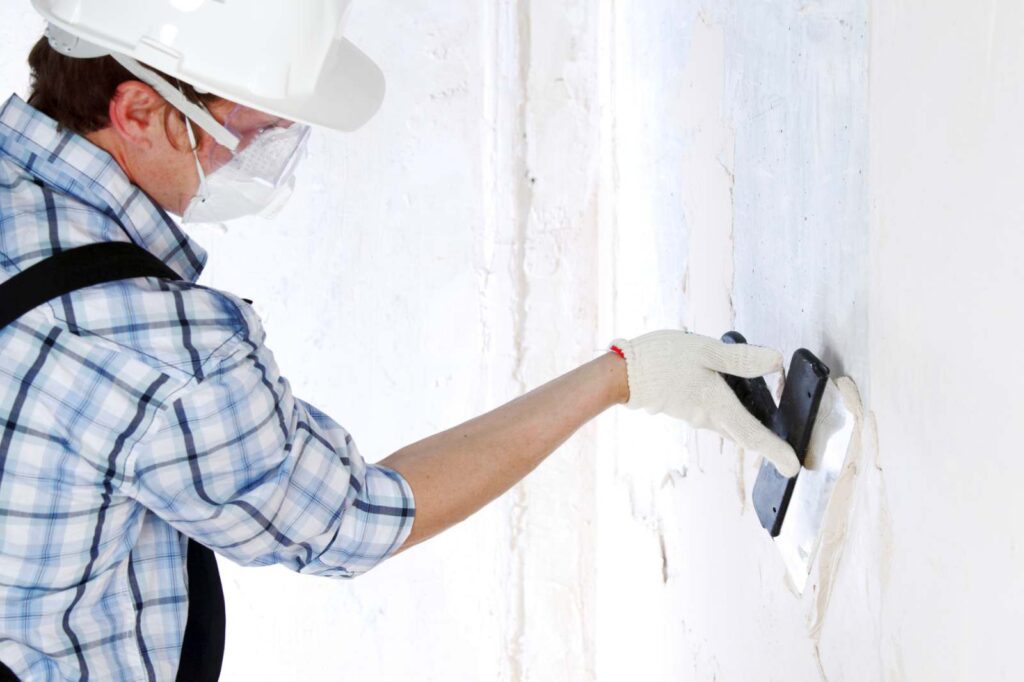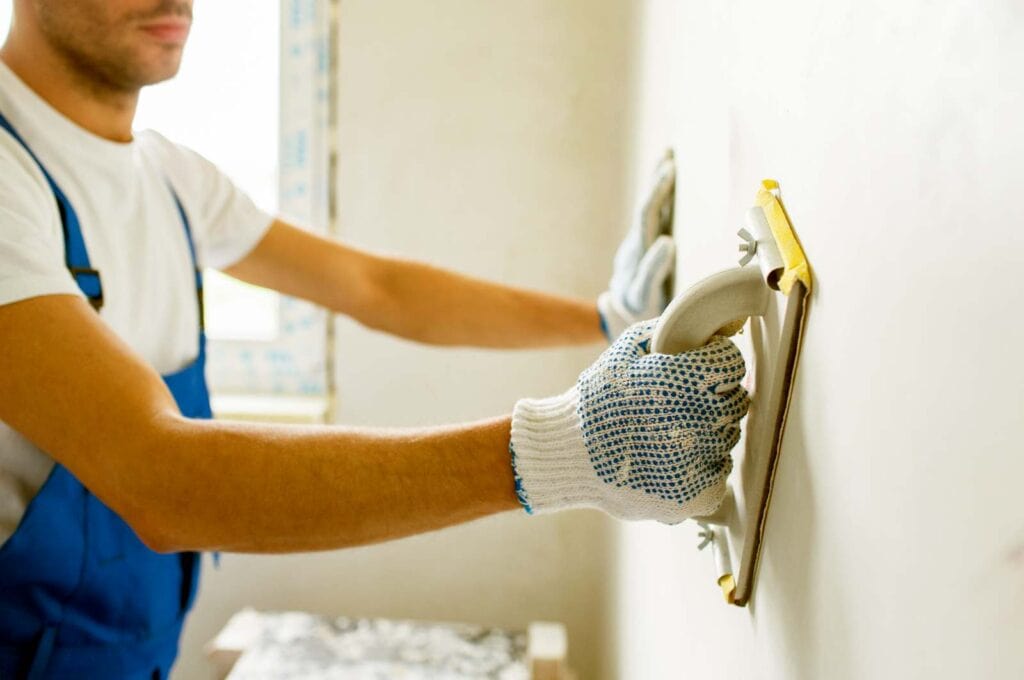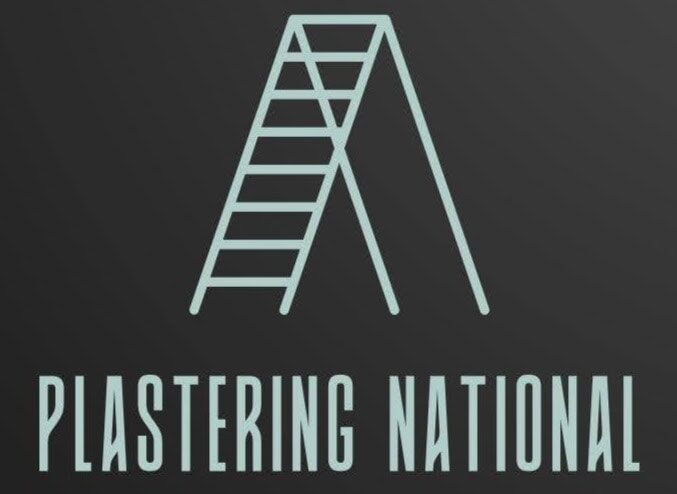Plastering is an essential part of any building project. Whether you’re constructing a new home, renovating an old one, or simply touching up a small area, hiring a professional plasterer is important.
A skilled plasterer ensures that your walls are aesthetically pleasing and durable. Cutting corners with DIY plastering can lead to costly repairs down the line.
In this blog, we’ll discuss the many benefits of hiring a qualified plasterer and why leaving this important job to professionals is better.
Let’s get straight to the point
Hiring a professional plasterer ensures high-quality, durable results that enhance the appearance and value of your home. While DIY plastering might seem cost-effective, it often leads to costly repairs due to mistakes like uneven surfaces or cracking.
Professional plasterers bring expertise, use the right materials, and save time, ensuring a smooth, long-lasting finish. They also follow proper safety protocols and avoid the risks of poor artistry.
Investing in a professional may cost more upfront but prevents future issues and adds long-term value.

Benefits Of Hiring A Professional Plasterer
Working with a professional plasterer has several advantages. Here’s why hiring an expert is the best choice.
1. Expertise And Experience
Professional plasterers undergo extensive training to learn their trade. Over time, they master the techniques needed to achieve a flawless finish.
This level of expertise takes time to acquire. Professionals know how to handle different types of plaster and can work in tricky areas such as corners or awkwardly shaped spaces.
2. Quality Workmanship
A professional plasterer pays attention to every detail, ensuring the finished product is smooth and even. They also know how to avoid common mistakes like applying too much or too little plaster.
Poor-quality work may only show after some time but can become apparent through cracks or uneven surfaces.
3. Time-Saving And Efficient
Plastering a room can be time-consuming, especially if you need to know what you’re doing. Professionals can complete the job in a fraction of the time it would take an inexperienced person.
This means less disruption to your daily life and faster results.
4. Use Of High-Quality Materials
Professional plasterers have access to top-quality materials. They know which plaster works best for different surfaces and can source durable, long-lasting materials.
Using cheap or inappropriate materials can cause problems, including cracking and poor adhesion.
Choosing The Right Professional Plasterer
With so many plastering companies, deciding which one to choose can take time. Here are some tips to help you find the best professional for your project:
- Look for Experience: A plasterer with years of experience is more likely to deliver high-quality results. Check their portfolio or ask for references.
- Check Reviews: Nowadays, you can find reviews for almost any service online. Look for plasterers with positive feedback from previous customers.
- Ask About Insurance: A reputable plasterer should have insurance. This protects both you and them in case anything goes wrong during the job.
- Request Multiple Quotes: Get several quotes before choosing a plasterer. This helps ensure you’re paying a fair price. Remember, the cheapest option is only sometimes the best.
Why Professional Plastering Is Worth The Investment?
Hiring a professional plasterer might seem unnecessary, but it’s worth it in the long run. They provide a superior finish and save you time and money.
Poorly applied plaster can lead to issues like cracks and uneven surfaces, requiring expensive repairs. Plastering adds value to your home and enhances its appearance when done correctly.

The Art Of Plastering
Plastering is more than just a building task—it’s a form of craftsmanship. A skilled plasterer can create beautiful finishes that complement your home’s architecture.
Professional plastering can transform a space, whether it’s smooth walls, detailed cornices, or ornate ceiling roses.
Key Benefits Of Professional Plastering:
- Creates a durable, long-lasting finish.
- Adds value to your home.
- Enhances the appearance of your walls and ceilings.
- It can be customised to suit your style or design needs.
Health And Safety Concerns
Plastering involves working with heavy materials, ladders, and sometimes electrical wires. It’s important to ensure the job is done safely.
Professional plasterers are trained in workplace safety and know how to avoid accidents. Hiring a professional reduces the risk of injury to yourself and ensures your home remains safe.
The Cost Of Professional Plastering
The cost of hiring a plasterer will vary depending on the size and complexity of the job. However, it’s important not to focus solely on price.
Cheap plastering services often use inferior materials and shortcuts, which can lead to problems later. Investing in a quality plasterer who will do the job right the first time is better.
Tips For Managing Costs
- Get multiple quotes.
- Don’t automatically choose the lowest bidder.
- Ask about the materials they use.
- Check for insurance and warranties.
Conclusion
Plastering is a critical part of any building or renovation project. It’s not just about aesthetics—proper plastering can enhance the durability of your walls and increase your home’s value.
Hiring a professional plasterer ensures the job is done correctly, saving you time and money in the long run. While it might be tempting to try DIY plastering, the risks far outweigh the benefits.
Hiring a skilled plasterer will give you a high-quality finish that lasts years. From experience and attention to detail to the use of high-quality materials, a professional brings expertise that a DIY approach can’t match.
Regarding plastering, it’s always best to trust the experts.
Frequently Asked Questions About Plasterer
Is Plastering a Good Job?
Plastering can be physically demanding work, so a level of physical fitness is important. It is a versatile job as many different construction times, from residential to commercial buildings, need plaster, so you will be kept engaged with a different site to work on constantly.
What Are the Disadvantages of Plaster?
Disadvantages of plaster – Gypsum plaster is not suitable for the exterior finish as it can not be used in a damp finish. – Cement can not be mixed with plaster of Paris. – It is more expensive than cement or cement lime plaster. – It can not be used in moist situations.
How Much Can Plastering Be Done in a Day?
Depending on the wall’s structure, a bricklayer can produce 1 to 10 m² of wall per day. If it is a thick wall of small stones, it will take a long time, while the large stones place these honeycombs in one row and have no windows and doors, it will be quick.
Why Do Plasterers Charge So Much?
Plastering prices. Many plasterers quote based on the size of the room – small, medium or large – or by the square metre. This is because of the number of plasterer boards and other materials they will need and the amount of time it will take.
Is It Hard to Become a Plasterer?
Plastering is a skill that can be learnt quite quickly. You don’t need special skills or expensive tools to get plastering work, just a willingness to work hard. The easiest way to break in is to go to the local contractors and construction companies and start asking around.

